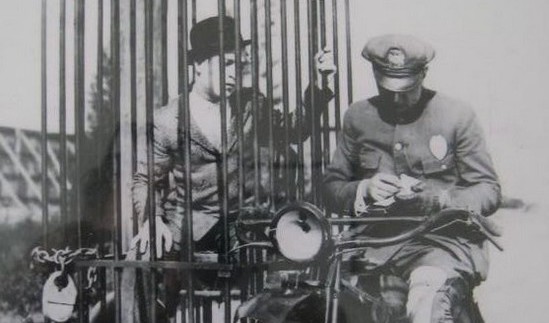- I’d probably have to surrender and watch TV if I noticed those binge-viewing shows becoming brilliant and noble, but I don’t. Do you?
- People seem as stressed as entertained by the bonanza of TV and near-TV content the decentralized media has thrust upon us. It’s hard to keep up. Annoying, almost. Don’t tell me what happened on the last episode. I haven’t had time to watch it yet. There’s not enough time. Let’s not talk about it.
- David Letterman used to say that he didn’t want television to be too good, to the point where you couldn’t ignore it. Maybe TV was better when it was worse.
- Distancing yourself from the whole thing–no TV or Netflix or Amazon Prime–might as well make you from another planet today, and that’s the point.
- Unplugging in a larger sense from the Digital Age is really hard and will become pretty much impossible in the near future. We’re part of the way inside the machine and the Internet of Things will move us forever within. You will be counted. You’ll count.
In “Escaping the Superfuture,” Douglas Coupland’s recent Financial Times column, the writer-artist indulges in some 1990s nostalgia–hard to believe, right?–realizing there’s no eluding today, which feels an awful lot like tomorrow. “Human beings weren’t built for progress,” he offers. An excerpt:
Lately I’ve been experiencing a new temporal sensation that’s odd to articulate, but I do think is shared by most people. It’s this: until recently, the future was always something out there up ahead of us, something to anticipate or dread, but it was always away from the present.
But not any more. Somewhere in the past few years the present melted into the future. We’re now living inside the future 24/7 and this (weirdly electric and buzzy) sensation shows no sign of stopping — if anything, it grows ever more intense. Elsewhere I’ve labelled this experience “the extreme present” — or another label for this new realm might be “the superfuture”. In this superfuture I feel like I’m clamped into a temporal roller coaster and, at the crest of the first hill, I can see that my roller coaster actually runs off far into the horizon. Wait! How is this thing supposed to end?
Is it ever going to end? Help! I want a pill called 1995! I want a one-year holiday from change! But that’s not going to happen.
. . .
The future is always supposed to be a mess, isn’t it? I think it’s funny the way people have an almost impossible time envisioning a future that isn’t a dystopian waste-scape. Growing up in the 1970s, the year 2016 was to have been a wasteland populated by a rifle-toting Charlton Heston, zombies and the Statue of Liberty poking out of a beach. Both oil and fresh water would be non-existent. No politics; just anarchy. But by many measurable statistical standards, right now is the best time ever in our history . . . and yet mostly we bitch, complain and worry — it’s what we do as humans. I think the biggest surprise for a 1970s Rip Van Winkle awaking in 2016 might probably be oil: cheap and plentiful oil. Wait — how did that happen? And look at the variety and quality of produce in even the most dismal grocery store . . . and cars look smashing and don’t belch blue smoke and gays seem to be part of society at large. And . . . wait, this is 2016? Count me in!
. . .
It’s hard to accept that our new superfuture mind state is permanent and that it’s not going away — how could it? Our devices that cause it aren’t going to go away. They’ll just get better and faster and we’re going to embed ourselves in the superfuture ever more deeply.•
Tags: Douglas Coupland

